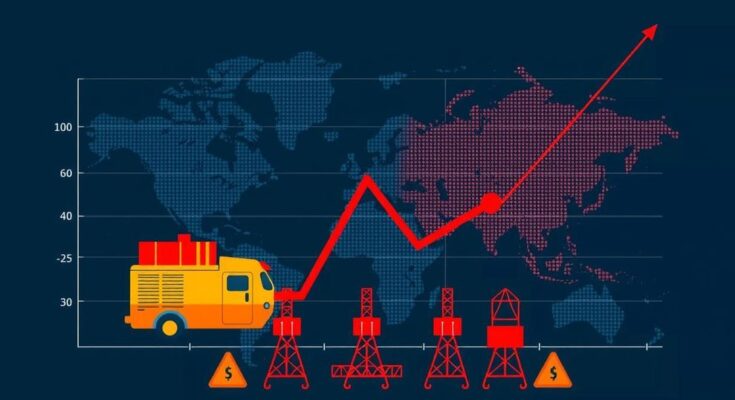Donald Trump’s proposed tariffs aim to protect U.S. companies by taxing imports, particularly from China. While this may bolster domestic businesses, economists warn of resulting price increases for consumers, potential job losses in other sectors, and disruptions in supply chains. The risks of trade wars and long-term economic isolation pose significant challenges to the U.S. economy.
In the unfolding drama of international trade, tariffs have taken center stage, igniting fierce debate on their implications. Donald Trump’s proposal for sweeping tariffs, particularly targeting imports from China, has raised eyebrows and prompted economists to weigh in on the potential fallout. These tariffs, which serve as taxes on foreign goods, aim to shield U.S. companies from foreign competition by inflating prices of imports. According to Peter Simon, a professor of economics at Northeastern, this tax is akin to a sales tax but applied to all goods brought into the U.S. The logic driving these tariffs revolves around economic protectionism, positioning it as a lifeline for domestic businesses that might struggle against cheaper foreign alternatives. Xiaolin Shi explained that such measures could allow U.S. companies to increase their profit margins and potentially hire more staff, resulting in a temporary decrease in unemployment for certain sectors. However, the shadow of tariffs looms large, as economists highlight the inevitable burden on consumers. Shi warns that heightened prices for imported goods will ripple through the economy, affecting everything from consumer spending to the job market. The stark contrast in costs can decimate purchasing power; a car priced at $30,000 may leap to $60,000 due to tariffs, meaning less money for other essential goods. The cascading effects of steep tariffs can unravel entire supply chains, particularly when vital components are included in trade restrictions. Nada Sanders, an expert in supply chain management, likened tariffs to antibiotics: while they may provide a short-term fix, overuse can lead to dire consequences. If Trump’s ambitious tariff strategy is fully realized, the prospect of economic turmoil looms ominously. Sanders describes the fallout as potentially catastrophic, with everyday items undergoing steep price hikes. Gains accrued by certain industries may be overshadowed by losses across the board. The specter of trade wars also rears its head; the backlash from other nations could push them closer together, creating formidable trade partnerships at the U.S.’s expense. In this tangled web of economic strategy, the wisdom of tariffs is hotly contested. Set against the backdrop of a shifting global economy, one question remains: will these measures ultimately ensnare the very industries they aim to protect?
Tariffs have historically been a tool used by governments to regulate imports, often as a means of protecting domestic industries and creating jobs. However, they come with complications that can disrupt markets. As the global economy has evolved, particularly following World War II, the U.S. has grappled with balancing free trade and domestic needs. The recent push for tariffs under Trump’s administration signals a shift in U.S. trade policy, focusing on homegrown industries while unintentionally risking economic entanglements and retaliatory measures from other nations.
In summary, the pursuit of aggressive tariff policies in the name of protecting American jobs poses significant risks to both consumers and the broader economy. While certain sectors may experience a temporary boost, the overall ramifications could lead to higher prices, trade wars, and a fractured relationship with global markets. The lessons from history and economic theory suggest that collaboration, rather than isolation, may yield better long-term results for American industries and consumers alike.
Original Source: news.northeastern.edu



